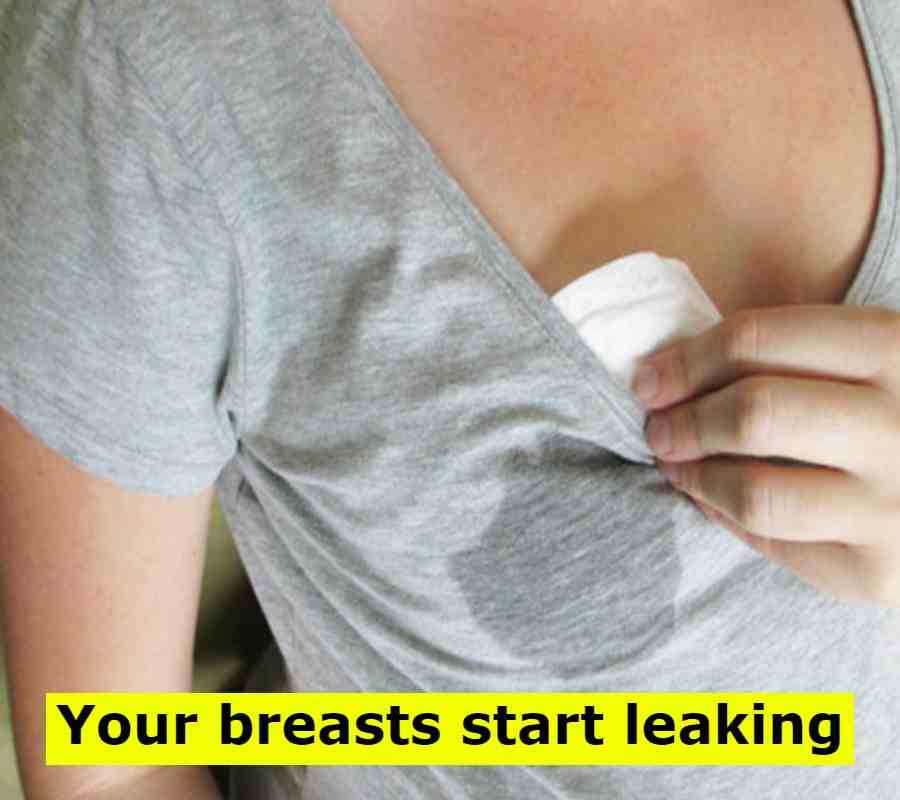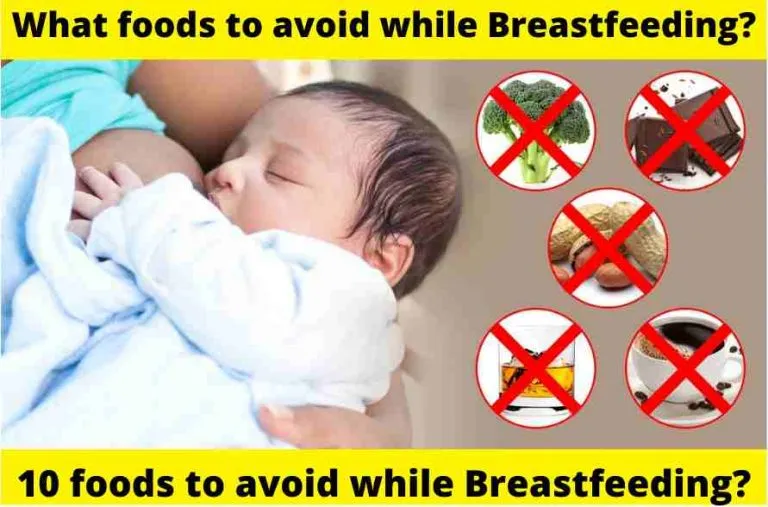7 Tips For The First week Of Breastfeeding For New Moms
In this post, I have talked about Breastfeeding tips for the first week.
Here is a guide to the first week of breastfeeding your newborn. First, I have talked about What to expect during the first week of breastfeeding?. second, Your guide to the first 7 days of nursing. And third breastfeeding problems in the first week.
That said let’s start,
A survival guide for the first weeks of breastfeeding.
- Day one, overcome from your birth and learn Breastfeeding.
- Day two, the baby will be hungry most of the time so you have to breastfeed frequently 9 to 12 times a day.
- Day three, keep observing your baby how many times the baby is getting milk, if possible make a breastfeeding timetable. Also, meet your breastfeeding Consultant.
- On day four, you will see engorgement in your breast and the baby will be swallowing much faster than before.
- Day five, now your body and baby will be comfortable with breastfeeding positions.
- Day six and ten, now you can start living into a more anticipated breastfeeding routine.
- Day eleven and fourteen, now plan for a growth spurt.
What to expect in the first week of breastfeeding?
The first week with your baby will be amazing. If you are a first-time mother then you might expect many situations that will be intimidating so I recommend you must read this helpful first week of nursing advice.
Within First Days and Weeks
1. Your body will produce Colostrum:

in the first week, your breasts will make a thick yellowish substance that is called colostrum. Your baby needs nutrients and other important substances that colostrum provides them. At first, there will not be enough liquid but within the first week, your body will gradually increase the amount. After 3 days of birth smaller, white type of milk appears but could take longer for first-time mothers. When this starts you will feel your breasts are full, hard, and warm. This is the time your baby will start to breastfeed more frequently.
2. Your breasts start leaking:

your breasts will become full and start to leak it is normal. As you breastfeed leaking will slow down When you start breastfeeding.
3. You will feel Engorgement:

within the first few weeks, your breasts will become firm, warm, and uncomfortable. This process is called engorgement, there are two ways to get rid of engorgement first, feeding your newborn baby frequently will help you to relieve the pain and fullness. second, you can use hand express your breastmilk or use the pump.
4. May experience sore nipples:

your nipples may become sore in the first few weeks due to the baby’s sucking.
5. Pain While Breastfeeding:

it possible your breasts and nipples will be sore or uncomfortable. But once your baby and you get some practice it will not be painful. If you have pain while breastfeeding, especially with a fever, talk with your doctor or nurse to figure out why.
6. Postpartum Depression:

some women feel Postpartum depression after having a baby. If you are experiencing postpartum depression or other mental health issues then you must talk to your health adviser. Do not take any medical pills without consultation with a doctor because the medication does pass into the breastmilk. That is not good for the newborn baby.
Breastfeeding your newborn: 7-day Breastfeeding guide for new mothers
Breastfeeding on days 1 to 3
Frequent nursing
First and second day after the birth your baby needs to nurse very often. Your baby needs your breast milk so start breastfeeding.
Do not use artificial nipples
The first week of breastfeeding baby needs you. So you must keep your baby next to you most of the day. This way, anytime your baby looks for the breast, it will be right there! Rooting, head bobbing, fist sucking, mouth fluttering.
Baby needs colostrum milk
first week of breastfeeding baby need milk that is rich in vitamins, proteins, antibodies, and antiviral agents. Your breastmilk only gives all of these benefits. Because you produce colostrum milk after birth.
Baby weight
Babies lose weight in the first few days so I will suggest you keep eye on baby weight loss. This is not a big issue because as you start breastfeeding your baby, he/she will gain weight.
latching issues
First-time mother face lathing issue. Some baby has problem latching in first few days, similar to mothers. Many mothers find it hard to breastfeed due to good positions.
In this case, you should hand express your breast milk. (remember pump will not work first few days as your milk is coming) try spoon to feed your baby enough milk.
Breastfeeding on days 3 to 5
Third or fourth day of breastfeeding your milk supply is overflowing, your breasts are full.
The baby will swallow more milk
Day third and fourth baby start swallowing more milk. Your breast will be full and warm. Many women become engorged when their breast milk comes in. in this situation hand expression of breast milk is a good option.
Overflowing issue
If You breastfeeding your baby most of the time then overflowing will stop. But if your baby is not latching or you have other problems you should use a breast pump to stop overflowing.
Buy best breast pumps here on amazon.
Baby diaper check
If your baby is getting enough then the baby will poop frequently. your baby’s poops will transition to a greenish-brownish color and will take on a mustard yellow color soon after. Wet diapers will become more abundant as well.
Breastfeeding on days 5 to 7
Now it is time to make a breastfeeding schedule and track baby hunger and weight.
Know baby’s hunger sign:
You have to know when a baby is hungry, full, and irritated with something. You have to know when the baby wants you. Read this 15 Signs Your Baby Is Getting Enough Breast Milk article I have explained everything
Baby nursing Schedules:
It will not be a possibility to make a breastfeeding schedule for newborns. Because some babies might have an unusual eating schedule, need to nurse every few hours. You have to figure out how it works. You can get a feeding diary schedule, I have made it when I was learning to breastfeed.
Baby diapers check :
Normally babies get 3 or 4 poopy diapers in 24 hours, And poop will be a quarter size. yellow in color, and sometimes seedy in texture. Some babies are pooping after each meal, and some are going to reinforce the poops. Pee diapers can differ, but it is common for five or six wet slides a day.
Supplements
Some mothers need to use pumps or supplements for newborns because of some issues.
If you have the same issue then I will suggest using these supplements for babies but if you are in good condition then you must nurse your baby naturally.
I have written Benefits Of Breastfeeding For Mom & Baby read this article before using supplements.
Breastfeeding problems in the first week
y born premature or mom has flat or inverted nipples.
Problem 3: do not have enough breast milk
first, on the day of breastfeeding your breast produces a low milk supply because the hormonal changes that trigger your milk production happens slowly, and remain until day 2 or 4. But do not worry about if your baby is getting enough milk because the baby’s stomach is tiny at first baby feeds frequently so it is not a problem.
you only need to be concerned if your baby is losing more weight than expected and producing too few wet and dirty nappies, or is showing signs of dehydration. For a full explanation of how often your newborn should be weeing and pooing.
Problem 4: breasts are really full and hard
When your milk comes in, your breasts would be fuller and firmer. This can be solved without complications if your baby feeding properly and regularly.
Some women’s breasts become rock hard, they are rocky and tender, unpleasant, sometimes painful – a state that is known as breast engorgement.
While it is only intermittent and mostly lasts 24 to 48 hours, your baby can also have a rough time latching when your nipples can get flattened.
Problem 5: breasts leaking
A breast leaking problem is common on the initial day of breastfeeding. It is possible that you may leak from one breast when feeding the baby with another breast.
Your breast may also leak when lying on your front while sleeping, or when something stimulates your let-down reflex unexpectedly – like another baby crying in the supermarket. Leaking usually settles down after six weeks or so.
Problem 6: I think I’m producing too much milk
It is possible that your breast might overflow for the first week of breastfeeding. Do not worry I will settle down soon.
If you are producing more milk then it possible that you may feel your breasts are full and painful. this issue may resolve itself as soon as your breasts adjust to their new job.
Conclusion
Here’s a breakdown of the first-week breastfeeding: what’s normal and what to do if something goes wrong.
We have talked about What to expect during the first week of breastfeeding? In short….
- Your body will produce Colostrum
- Your breasts start leaking
- You will feel Engorgement
- May experience sore nipples
- Pain While Breastfeeding
- Postpartum Depression
Now you know What to Expect While Breastfeeding in the first week
I have also talked about a 7-day Breastfeeding guide. And also talked about Breastfeeding problems in the first week. In short..
- Breastfeeding hurts
- The baby is not latching properly
- do not have enough breast milk
- breasts are really full and hard
- breasts leaking
- I think I’m producing too much milk
Related articles
- 15 Proven Benefits Of Breastfeeding For Mom & Baby?
- 5 Best Proven Breastfeeding Tips For New Moms: Positions
- 15 Signs Your Baby Is Getting Enough Breast Milk
- How To Do Hand Expression Of Breast Milk: Best Techniques
- 30 Breastfeeding Tips For Newborns: New Mom Must Know 2021
- 10 Best Nursing Pillows: For New Born Baby 2021
CDC. (2020a, February 24). What to Expect While Breastfeeding. Centers for Disease Control and Prevention. https://www.cdc.gov/nutrition/InfantandToddlerNutrition/breastfeeding/what-to-expect.html
CDC. (2020b, November 7). CDC’s Infant and Toddler Nutrition. Centers for Disease Control and Prevention. https://www.cdc.gov/nutrition/infantandtoddlernutrition/resources.html#Breastfeeding
Segrave-Daly, J. (2020, April 18). How to Breastfeed During the First 2 Weeks of Life. The New York Times. https://www.nytimes.com/article/breastfeeding-newborn.html




